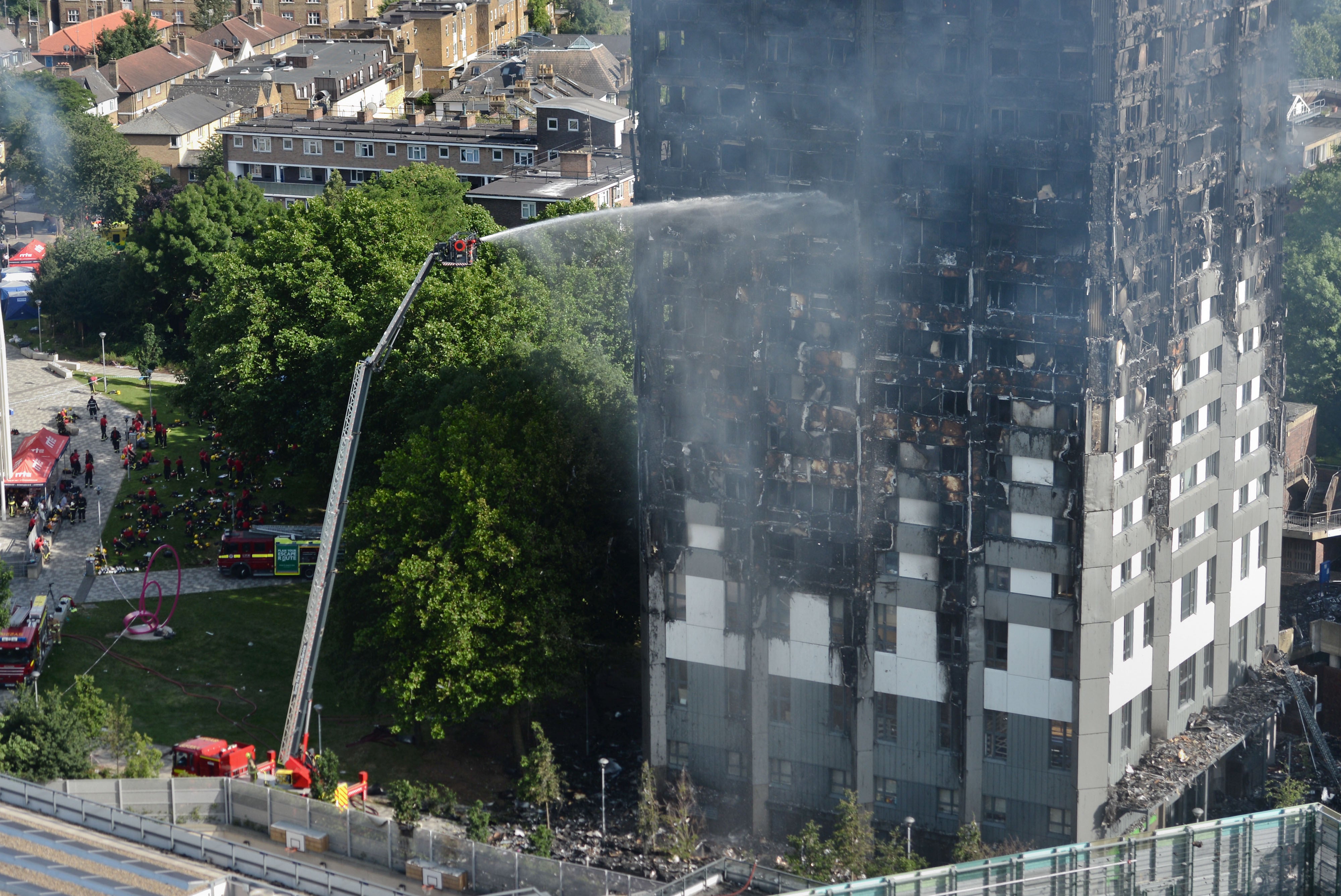Grenfell firefighters ‘should not be scapegoats for central Government failings’
Lawyers representing survivors and victims’ families criticised the London Fire Brigade (LFB) for ‘shocking’ failures.

Your support helps us to tell the story
From reproductive rights to climate change to Big Tech, The Independent is on the ground when the story is developing. Whether it's investigating the financials of Elon Musk's pro-Trump PAC or producing our latest documentary, 'The A Word', which shines a light on the American women fighting for reproductive rights, we know how important it is to parse out the facts from the messaging.
At such a critical moment in US history, we need reporters on the ground. Your donation allows us to keep sending journalists to speak to both sides of the story.
The Independent is trusted by Americans across the entire political spectrum. And unlike many other quality news outlets, we choose not to lock Americans out of our reporting and analysis with paywalls. We believe quality journalism should be available to everyone, paid for by those who can afford it.
Your support makes all the difference.Firefighters who responded to the Grenfell Tower fire should not be “scapegoated” for central Government and corporate failings, an inquiry into the disaster has heard.
Louis Browne QC, representing the Fire Officers Association (FOA) and incident officer Richard Welch, told the Grenfell Tower Inquiry on Monday that the fault “rests squarely” with those involved in the design, construction and approval of the building’s 2015 refurbishments.
It came as lawyers made closing statements for the latest modules on firefighting as part of the inquiry’s phase two, examining how Grenfell Tower came to be coated in flammable materials that caused the 2017 fire to spread rapidly and led to 72 deaths.
Lawyers representing survivors and victims’ families criticised the London Fire Brigade (LFB) earlier on Monday for several failings in their response to the fire.
Mr Browne said “the real failure of the fire and deaths” did not lie with “the individual LFB officers and staff who tried heroically to quell the fire and rescue as many lives as possible”.
He argued that decisions, including the “stay put” policy, were made under the “entirely reasonable assumption” that building regulations were fit for purpose and had been complied with.
“Tragically, this reasonable assumption was not valid because of the gross failures of those involved in the design, construction and approval of the refurbishments,” he said.
“The fault of this tragedy and the enormous loss of life rests squarely with them.
Grenfell was the culmination of a generation of central Government policies
“They cannot evade responsibility by seeking to blame the actions of firefighters including senior staff on the night. To permit them to do so would compound their egregious failures.”
Martin Seaward, representing the Fire Brigade Union (FBU), also said any failures were “systemic institutional failures”.
Mr Seaward urged the panel to assess the firefighters’ performance in the wider political and economic context, and to apportion blame “particularly in relation to those who created and enabled this truly horrifying disaster”.
“Grenfell was the culmination of a generation of central Government policies including deregulation and the war on the culture of health and safety, privatisation, fragmentation, austerity and the degradation of social housing,” he said.
He said that, although LFB lessons must be learned from the blaze, “it would be wrong to scapegoat the fire and rescue services for the failures of central government and corporate culture that made people’s homes unsafe”.
Danny Friedman QC, representing several residents and families of those who died in the inferno, had earlier told the inquiry the fire services’ failures were “shocking” and caused the “extent of loss of life”.
“The brigade was incompetent and incapable at every level to respond to a fire that was extreme but foreseeable and was actually in breach of its duty under statute and policy,” he said.
Meanwhile, Professor Leslie Thomas QC, who represents other residents and families, criticised the LFB as “seemingly unwilling or unable” to reflect on its failings and change as an organisation.
“This is an affront to our clients and the memories of those who lost their lives,” he said.
However, Anne Studd QC, representing Mayor of London Sadiq Khan, argued the head of the LFB, London Fire Commissioner (LFC) Andy Roe, had made “significant progress” for reform in line with the phase one findings.
“It is essential that the tragedy of the Grenfell Tower fire provides a focus for change both within the LFB, and indeed within other rescue services and the central Government approach to reform of fire and building regulations,” she added.
“The mayor has already demonstrated the sustained focus on ensuring that recommendations from your report remain a central feature of the transformation of the brigade.”
Stephen Walsh QC, representing Commissioner Roe, also said the LFB “feel(s) deeply that the brigade owes it to the bereaved survivors and residents of Grenfell Tower and the vicinity and to the wider community to learn lessons from the tragic events of June 2017”.
Phase two of the inquiry’s hearings is expected to conclude in May.
A report is expected to be then published at a later date.
Grenfell United, a group for bereaved and survivors, said: “It’s heartbreaking to hear that the LFB’s catastrophic failures were foreseeable and preventable.
“We need to see urgent reform within the LFB and other statutory bodies.
“Until then, firefighters and residents continue to be put at risk.”